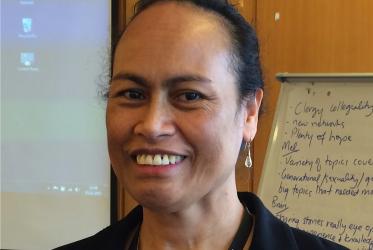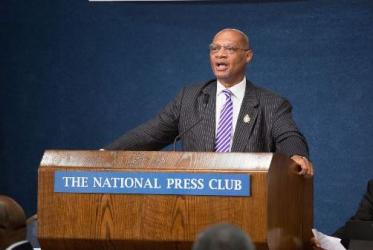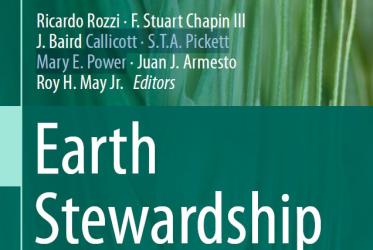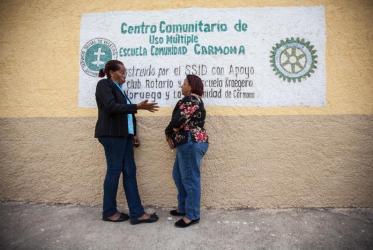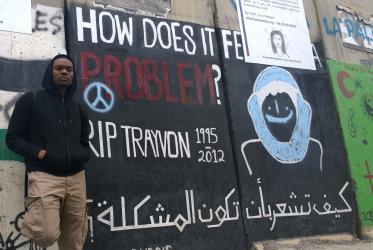Displaying 121 - 140 of 143
02 March 2016
Symposium focuses on religion, violence, extremism
04 February 2016
Church challenge: Welcoming "strangers" in a climate of fear
18 November 2015
Churches call for United States to confront racism
08 September 2015
Inspirations for Earth Stewardship
12 August 2015
WCC encourages churches to pray on Hiroshima Day
06 August 2015
Reclaiming our humanity
23 June 2015
WCC condemns mass killing in Charleston
18 June 2015
Church leaders address statelessness in Dominican Republic
03 February 2015
Advent protests in New York City
16 December 2014
WCC advisory group to promote gender justice
05 December 2014
Indigenous faith leaders reflect on resilience and climate change
23 September 2014
Student calls for more age diversity in WCC
08 July 2014


